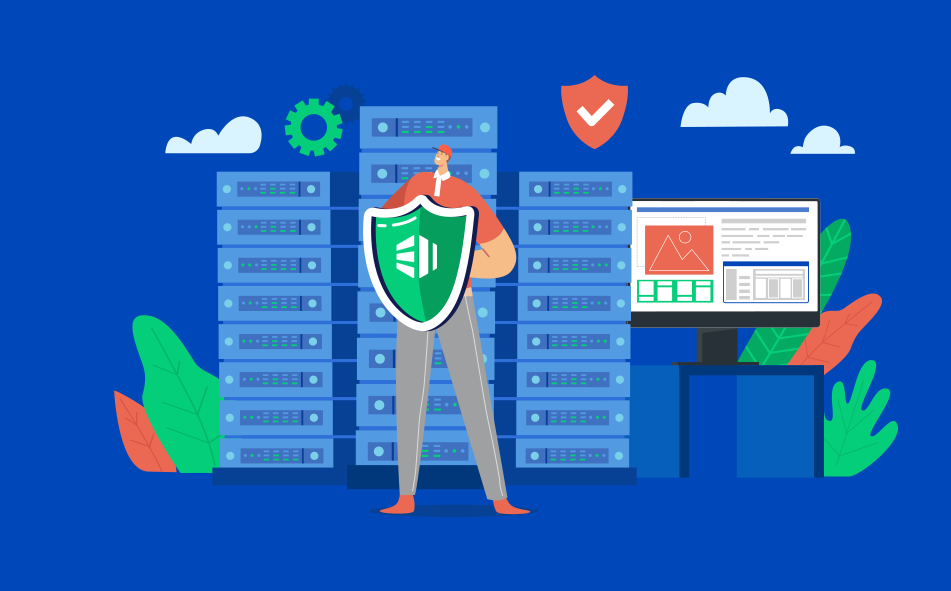Website Security in 2024: Choosing a hosting Provider that Safeguards Your Digital Assets
In the digital arena, where attention spans are fleeting and competition is relentless, site speed reigns supreme. Even a minor delay in page loading can trigger a domino effect of increased bounce rates, diminished user engagement, and lost conversions. While various factors influence website speed, your hosting provider wields significant power. Let's unravel the impact of your hosting choice on website performance and reveal the key features to prioritize for lightning-fast speeds.
Why Website Speed Matters in 2024
- User Experience: Today's users expect instant gratification. A slow website breeds frustration, leading to higher bounce rates and diminished engagement. According to Google's research, as page load time increases from one to three seconds, the probability of a bounce increases by 32%
- Conversion Rates: Studies have shown that a mere one-second delay in page load time can result in a 7% reduction in conversions. A fast-loading website creates a seamless user journey, encouraging visitors to complete purchases, fill out forms, and engage with your content.
- Search Engine Rankings: Google and other search engines factor web speed into their algorithms. Faster websites often enjoy higher search rankings, resulting in increased organic traffic and visibility.
- Mobile Performance: With the majority of internet users browsing on mobile devices, often with slower connections, optimizing for mobile is paramount. Google's mobile-first indexing emphasizes this further.

How Your hosting Provider Influences site Speed
Your hosting provider's infrastructure and features directly shape your website's performance. Let's explore the key elements:
1. Server Hardware & Technology:
- Processor (CPU) & Memory (RAM): The server's processing power and memory capacity determine how swiftly it handles requests and serves your website's files. Prioritize hosting providers equipped with modern, high-performance server hardware.
- Storage Type: Solid-State Drives (SSDs) significantly outperform traditional hard drives in data access speed, directly translating to faster page loads.
- Server Software: The web server software (e.g., Apache, Nginx, LiteSpeed) influences performance. LiteSpeed, renowned for its speed and efficiency, can provide a noticeable edge.
2. Network Infrastructure:
- Bandwidth & Connectivity: The bandwidth and network connectivity of your hosting provider's data center impact data transmission speed between the server and visitors' browsers.
- Content Delivery Networks (CDNs): CDNs, like Cloudflare or Akamai, cache your website's content across a global network of servers. This reduces latency and speeds up loading times for geographically dispersed users.
3. Server Optimization & Caching:
- Server-Side Caching: Caching technologies, such as Varnish or Redis, store frequently accessed data in memory for rapid retrieval, significantly boosting speed.
- Database Optimization: If your website relies on a database (e.g., wordpress), database optimization techniques like query caching and indexing streamline response times.
4. Resource Allocation:
- Shared vs. Dedicated Resources: In shared hosting environments, multiple websites compete for the same server resources, potentially leading to performance fluctuations. VPS (Virtual Private Server) or dedicated hosting offer dedicated resources, ensuring more consistent and predictable performance.
5. Server Location:
- Proximity to Your Audience: Select a hosting provider with data centers strategically located near your target audience. This minimizes latency and accelerates loading times, enhancing user experience.
Key Questions to Ask Potential Hosting Providers To know about web hosting security
- What type of server hardware & technology do you use?
- Do you offer SSD storage?
- What caching mechanisms do you implement?
- Do you provide CDN integration or have your own CDN?
- What is your uptime guarantee?
- What security measures do you have in place?
- Do you offer scalable plans to accommodate growth?
- What level of customer support do you provide?
Conclusion
Your hosting provider's capabilities directly influence your website's speed and overall performance. By prioritizing factors like cutting-edge server technology, robust network infrastructure, effective caching, and scalability, you can secure a hosting solution that delivers lightning-fast speeds and an exceptional user experience.
You are web designer, owner or developer, web hosting security comes first.
Remember, a fast website is not a luxury; it's a necessity in today's competitive digital landscape. Invest in a high-performance hosting solution, and your website will reap the rewards in the form of increased engagement, improved conversions, and higher search engine rankings.
